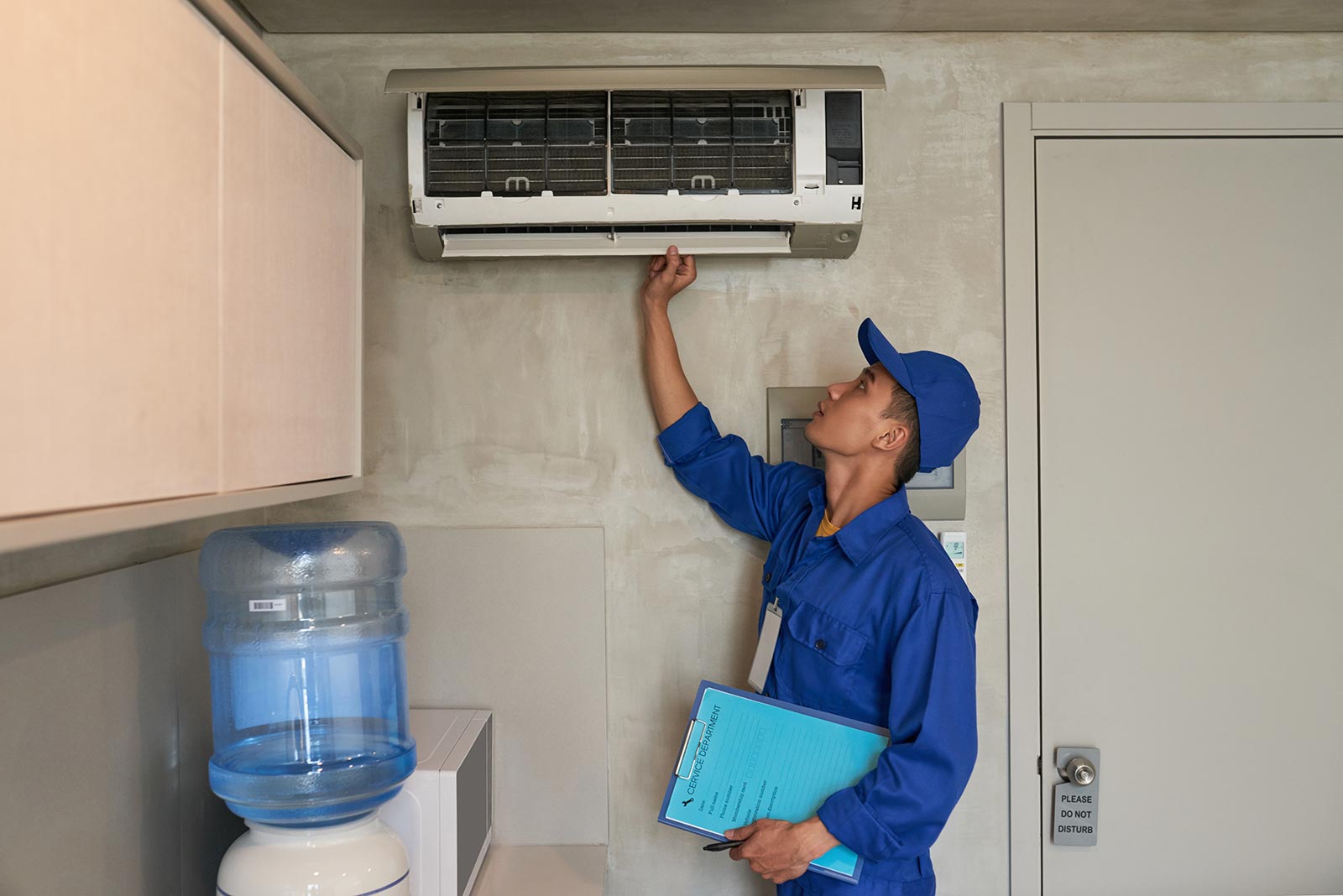When faced with an AC system not functioning optimally, homeowners often grapple with whether to repair or replace it. Understanding the pros and cons of each option is essential to make an informed choice. We’ll explain the pros and cons of repairing versus replacing your air conditioner, helping you make a well-informed decision.
Repairing Your AC
Like any decision, there are pros and cons to repairing your AC. Understanding these advantages and disadvantages can help you make an informed choice that aligns with your needs and budget.
Pros of Repairing Your Air Conditioner:
- Cost-Effective:
Repairing your air conditioner is more cost-effective than replacing it, especially if the issue is minor or isolated to a specific component. Repairing allows you to address the specific problem and restore the functionality of your AC without incurring the expense of purchasing a new system. - Familiarity and Compatibility:
If you have been satisfied with the performance of your current AC system and are familiar with its operation, repairing it allows you to maintain that familiarity. Repairs often involve replacing faulty components, ensuring compatibility with your existing system. - Short-Term Solution:
If you’re not planning to stay in your current home for an extended period or if your budget is limited, repairing the air conditioner can provide a satisfactory short-term solution. It allows you to restore comfort without the significant upfront investment of a new unit.
Cons of Repairing Your Air Conditioner:
- Aging System:
If your air conditioner is reaching the end of its expected lifespan, frequent repairs may become necessary. In such cases, the cumulative repair costs can quickly add up, making replacement a more financially viable option. - Energy Efficiency:
Older air conditioning systems are less energy-efficient than newer models. Even after repairs, they may consume more energy, leading to higher utility bills. In such cases, replacing the system with a more energy-efficient model may be more cost-effective. - Outdated Technology:
Advancements in air conditioning technology have led to significant improvements in efficiency, performance, and comfort. If your current system lacks modern features or fails to meet your desired comfort level, replacing it with a new unit may be the better long-term solution.
Replacing Your AC
AC replacement offers the opportunity to upgrade to a newer, more efficient model that can provide improved comfort and energy savings. However, like any significant investment, AC replacement has pros and cons that should be carefully considered. Understanding these advantages and disadvantages can help you decide whether replacing your AC is the right choice for your home or business.
Pros of Replacing Your Air Conditioner:
- Improved Energy Efficiency:
Newer air conditioning systems are designed to meet higher energy efficiency standards. Replacing your old unit with a new, energy-efficient model can significantly reduce your energy consumption and lower your utility bills. - Enhanced Comfort:
Advanced features and technologies in newer air conditioners provide improved comfort, such as better temperature control, humidity management, and noise reduction. Upgrading to a new system can enhance your overall indoor comfort experience. - Long-Term Investment:
Investing in a new air conditioner is a long-term solution that can provide reliable cooling for years. New systems often come with warranties, giving you peace of mind and protection against unexpected repair costs.
Cons of Replacing Your Air Conditioner:
- Higher Upfront Cost:
The upfront cost of purchasing and installing a new air conditioner is typically higher than the cost of repairs. However, it is important to consider the long-term savings in energy bills and the potential avoidance of frequent repairs. - Disruption and Installation Time:
Replacing an air conditioner requires professional installation, which can cause temporary disruption to your home. The installation process may take some time, and you may be without cooling. - Environmental Impact:
Disposing of old air conditioning units can have environmental implications. However, many HVAC service providers offer proper disposal and recycling options for old equipment, minimizing the environmental impact.
Trust The Professionals To Help You Decide
Ultimately, the decision to repair or replace your air conditioner depends on various factors, including the age of your system, the nature of the problem, your budget, and your long-term goals. Consulting with a qualified HVAC professional can help you assess your options and make the best choice for your circumstances.
At NewRise Heating and Cooling, we specialize in air conditioning repair and replacement services. Our experienced technicians can evaluate your system, provide expert advice, and help you determine the most suitable action. Contact us today for reliable HVAC solutions tailored to your needs.




